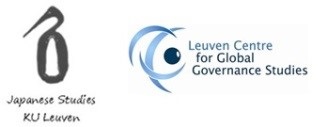The late Professor Dr. Eric Remacle, Université Libre de Bruxelles (ULB) and Professor Dr. Takako Ueta at the International Christian University in Japan started the joint Japan-EU Conference in Brussels in 1998. This conference turned out to be an annual event and the first six years it was supported by the TEPSA, and this year, we come back to TEPSA again.
No other Japanese scholars have served and contributed extensive and practical knowledge to the diplomatic service, after taking the position of full time university professor, than Professor Dr. Takako Ueta. Different from the US, and similar to many European countries, academic and governmental careers are separate positions. This is why she is so distinguished. Her research has integrated theoretical and practical experience. Another specificity of her career is that she has been stationed in Continental Europe, including Geneva, Brussels, and Vienna, while most of Japanese scholars of European Studies spend their time in the UK.
Professor Dr. Ueta was a visiting research fellow of the Graduate Institute of International Studies in Geneva from 1985 to 1987 when the US-Soviet Arms Control Talks took place, and she found the CSCE Stockholm CSBM Document very innovative. At that time, she had valuable exchanges with the late Professor Victor-Yve Ghebali, and Professor Curt Gasteyger. In 2002, she was a visiting professor of the Institut d'Etudes Europeenes, ULB in Brussels, and in 2013, she stayed at the Austrian Institute of International Affairs (OIIP).
Her diplomatic activities sharply reflected her academic interest on the institutionalization of security: she was a special advisor to the Embassy of Japan to Belgium, from 1990 to 1993, and was responsible for NATO, CSCE and European security during the eventful years. Immediately after her arrival, Iraq invaded Kuwait. NATO started its long journey of transformation including its operation in Yugoslavia and security cooperation with Russia after the unimaginable dissolution of the USSR. From 1992 to 2002, she was a member and advisor to the Japanese Delegation to main CSCE/OSCE meetings including Foreign Ministerials and Summits. In Tokyo, she was a special analyst in the First Analysis Division of the Foreign Ministry from 1993 to 1995.
In July 2008, she was appointed as Ambassador, Deputy Chief of the Mission of Japan to the EU, responsible for political security affairs. One week after her arrival, the War in Georgia broke out. It was the period of the start of economic difficulties and the euro crisis, while she observed the entering into force of the Lisbon Treaty, in particular the establishment of the EEAS. One of the Political Security Ambassadors of an EU member country, who was her counterpart, referred to his memory of Ambassador Ueta, on the occasion of his farewell reception, even one year after her departure, since Ambassador Ueta was recognized as the "28th PSC Ambassador" (at that time, the EU had 27 members) and her activities were so impressive. She enjoyed the great honour of being referred to in the keynote address of President Van Rompuy on March 4th in 2011: "one may appreciate the Japanese proposal of a Japan-EU cooperation in the field of disaster relief, the so-called 'Ueta-initiative', which was tabled last month." A lot of work for enhancing Japan-EU relations was done in her term.
Her latest publication in English are:
"EU Policy toward Asia and the Pacific: A View from Japan" in International Relations and Security Network (ISN), Center for Security Studies (CSS), September 2013, ETH Zurich
"The Role of Europe in Enhancing Cooperative Security in Asia and the Pacific: A View from Japan" in Security Policy Brief No.50 (October 2013) of EGMONT-Royal Institute for International Relations.
She has published many books and articles on European Security as well as Japan-Europe relations in Japanese and in English, including:
"Japan, EU and OSCE", in R Seidelmann et al, eds., European Union and Asia: A Dialogue on Regionalism and International Cooperation, Nomos, Baden-Baden, 2008.
"Japan and the CSCE", in M. Lucas, ed., The CSCE in the 1990s, Nomos, Baden-Baden, 1993, Forward by Hans-Dietrich Genscher.
She published co-edited books which collected papers and presentations of the Japan-EU Conferences:
T. Ueta and E. Remacle, eds., Japan-EU Cooperation: Ten Years after the Hague Declaration, Studia Diplomatica, LIV, Nos.1-2, Brussels, 2001.
Ueta and Remacle, eds., Japan and Enlarged Europe: Partners in Global Governance, P.I.E. Peter Lang, Brussels, 2005.
Ueta and Remacle, eds., Tokyo-Brussels Partnership; Security, Development and Knowledge based Society, P.I.E. Peter Lang, Brussels, 2008.


















